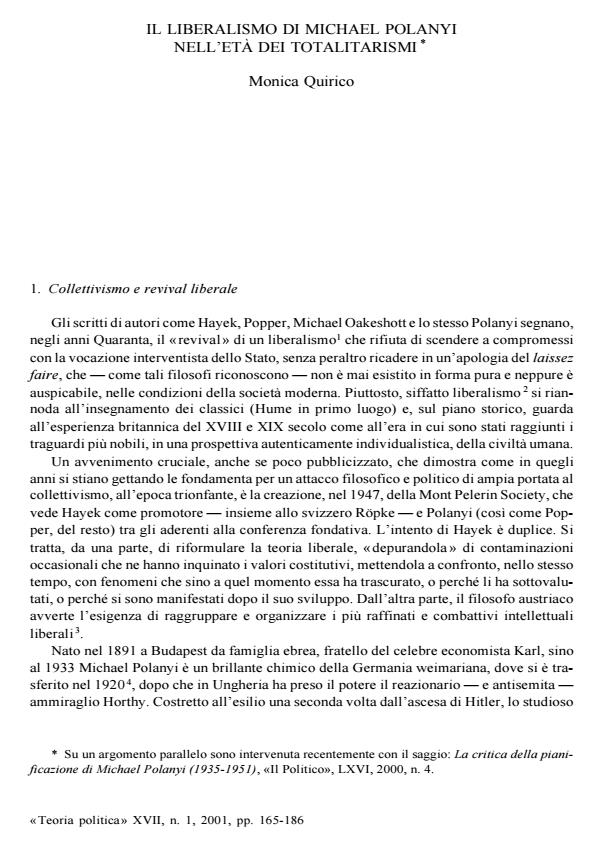Il liberalismo di Michael Polany nell'età dei totalitarismi
Journal title TEORIA POLITICA
Author/s Monica Quirico
Publishing Year 1 Issue 2001/1
Language Italian Pages 22 P. File size 72 KB
DOI
DOI is like a bar code for intellectual property: to have more infomation
click here
Below, you can see the article first page
If you want to buy this article in PDF format, you can do it, following the instructions to buy download credits

FrancoAngeli is member of Publishers International Linking Association, Inc (PILA), a not-for-profit association which run the CrossRef service enabling links to and from online scholarly content.
Since the end of World War II there has emerged a growing tide of opinion which meant a powerful challenge to the hegemony long held by collectivist, anti-capitalist thinking. The Mont Pelerin Society, founded in Switzerland by Hayek and Röpke, help the shift from the desiderability of State intervention to the desiderability of market economy. Michael Polanyi (1891-1976), Karl’s brother, member of the Society from the beginning, by the politics in Hungary after the World War I was made an émigré to Germany, where he became a brilliant researcher in chemistry. He left Berlin in 1933, for a position at Manchester University. Although he continued to turn out important scientific papers for another dozen years, Polanyi, from the Thirties, wrote and published quite a variety of material on economics, science and political philosophy. In 1948, he eventually exchanged his chair in chemistry for one in social science. Polanyi hadn’t a longing for laissez faire, but he thought that the issues of economic safety and planning (both in economics and in science) were becoming too important, to the detriment of freedom. That’s why he stressed the need to protect the self-government of the «Science Republic», as the key of a free society, where freedom is not conceived in an atomistic meaning, but as attachment to Truth.
Monica Quirico, Il liberalismo di Michael Polany nell'età dei totalitarismi in "TEORIA POLITICA" 1/2001, pp , DOI: